Yale College Dean Pericles Lewis hosts panel on midterm election results
Three political science experts weighed in on the election’s historical context: the factors that may have led to Democrats’ overperformance.
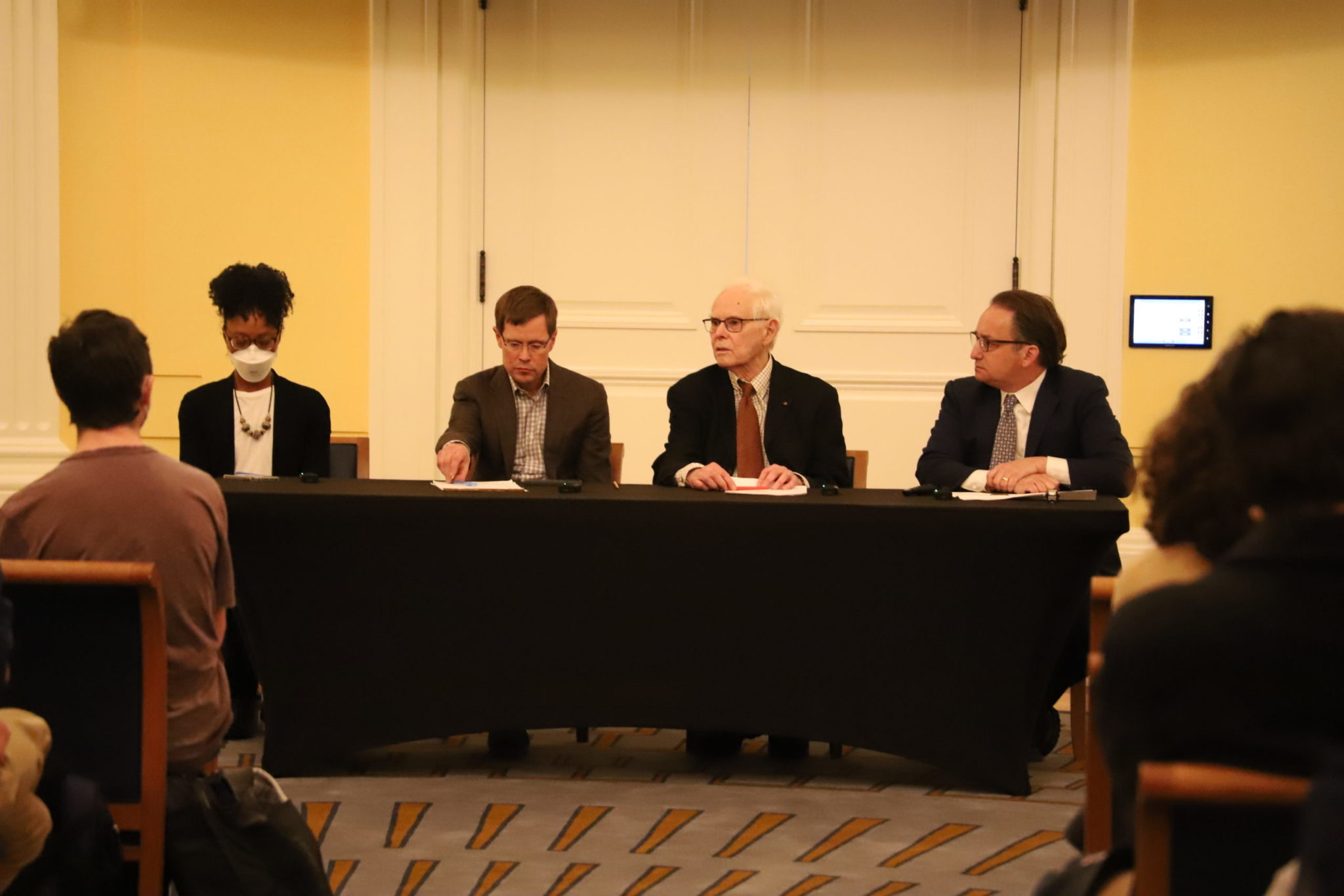
Aliesa Bahri, Contributing Photographer
As election results continued to roll in, Yale College Dean Pericles Lewis sat down with Yale political experts to discuss an election season that bucked traditional midterm expectations.
The Chair of the Department of Political Science, Gregory Huber, and two faculty members, Allison P. Harris and David Mayhew, joined Lewis in the Schwarzman Center’s President’s Room for a debrief on current conclusions of the midterm elections. As of Wednesday evening, control of both the Senate and the House of Representatives was still up in the air, with results from several states remaining too close to call.
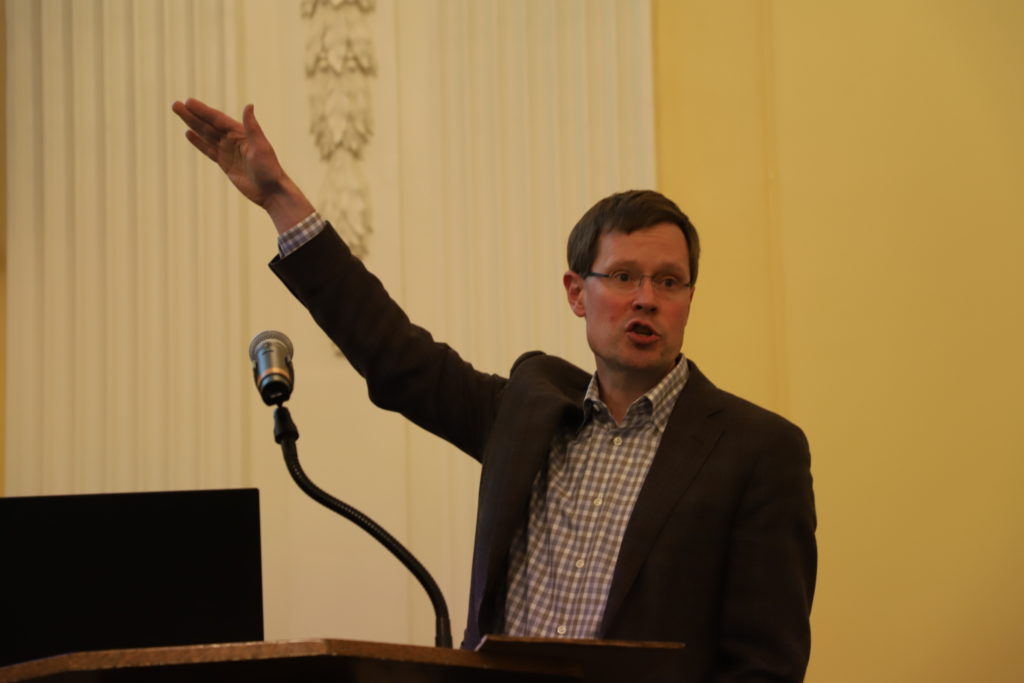
Huber attributed Democratic overperformance on Tuesday to three possible factors: Donald Trump, candidate quality and the disparity between economic strength and high inflation. This year came close to breaking the pattern of the party holding the White House losing a multitude of seats in a midterm, although Mayhew predicted that Republicans would ultimately still earn a “small majority” in the House.
“A party that wins the White House tends to overshoot, policy wise, as they’ll put together a bunch of policies that really tickle the base of the party but alienate the median and mode” Mayhew said.
Democrats had so far flipped one seat in the Senate, but results in Arizona, Nevada, Georgia and Alaska are still to be determined. The House also remained in play; the Associated Press, by Wednesday evening, had called 207 seats for Republicans, meaning they would have to win at least 11 of 39 uncalled races to capture a majority.
Mayhew described the election as a “tangle” of issues and a “trifecta referendum” on the Supreme Court, Donald Trump and Joe Biden, also noting the impact of reapportionment in Texas, Florida and Tennessee.
Huber, on the other hand, addressed how mail-in ballots will impact waiting time at the polls. He also discussed the impact of economic issues, including unemployment and inflation. Huber presented his own models, which predicted that the Democrats would lose 24 to 38 seats. Based on this model, the Democratic Party overperformed, only dropping nine to 11 seats.
“Star candidates” and central issues
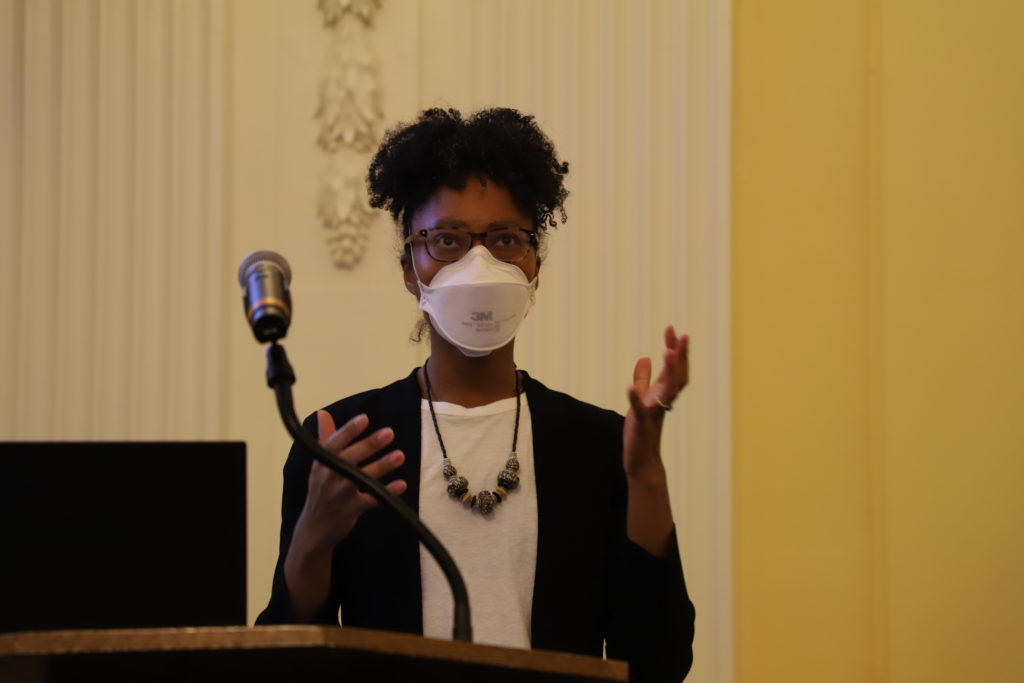
Lewis pointed out “star candidates” like Ron DeSantis ’01 and Stacey Abrams LAW ’99, and the impact they may have on the ballot, noting both Abrams and DeSantis’s Yale affiliation.
Mayhew, however, said he was not sure Abrams was a “quality candidate this time around,” as her rhetoric about the “stolen” 2018 governor’s race seemed to have affected her negatively.
Lewis also asked about why the proportion of college-educated Americans leaning Democrat has increased, and Huber said there are two main explanations. First, he acknowledged the changing identity of the Democratic Party, referencing how Tim Ryan, the Democratic nominee for Ohio’s open Senate position, spoke about how the Democrats are no longer a party of industrial workers.
One student asked a question about how threats to democracy, more specifically the Jan. 6 insurrection, affected voting.
“I don’t think it would cause Republicans to flip and vote for Democrats, but it’s likely that it caused some Republicans to lose faith in the election system and stay home,” Huber said.
Huber expanded on his answer with an anecdote. When driving his child to school, he used to see numerous Trump flags on people’s front porches. However, after the Jan. 6 insurrection, only two flags remained.
But Huber still emphasized the importance of understanding the daily lives of voters in predicting the electorate.
“Think about what it’s like to be someone who’s expecting to work in a factory or manufacturing plant in an industry that’s disappearing,” Huber said. “Why would you be a Democrat when the Democratic Party may not represent your interests as an industrial worker?”
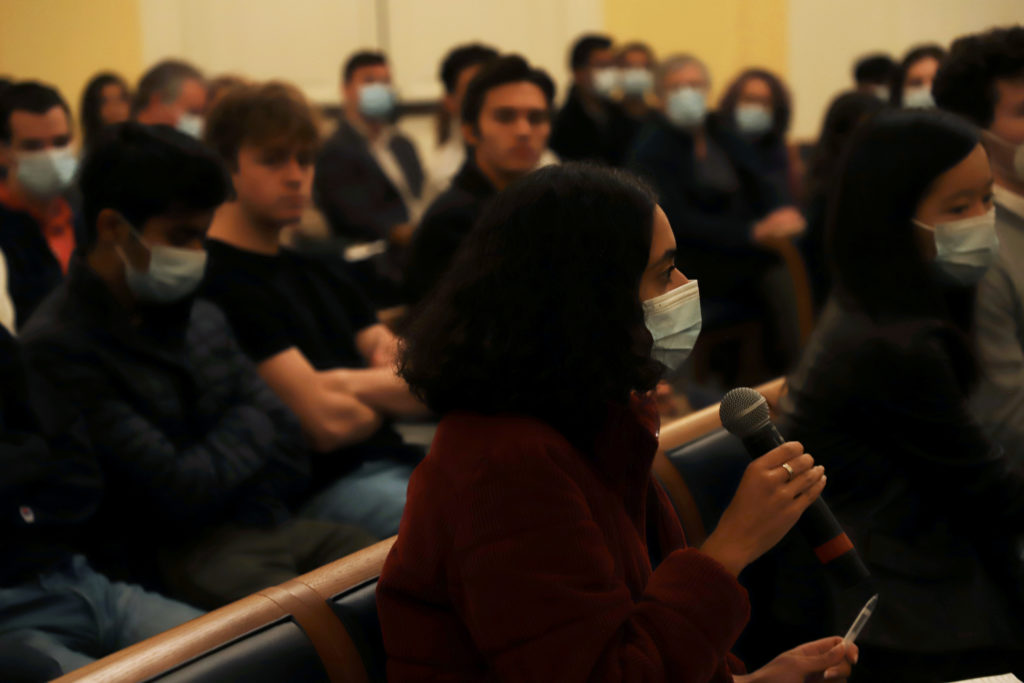
Another student brought up the role of Gen Z voters in the elections, asking if the overwhelming number of young voters that choose the Democrats in this election will hold strong in future years.
Harris said while generations tend to become more conservative over time, there is something “unique” about this current generation of voters that is “much more” left-leaning than prior ones.
Moving forward
Mayhew said the midterm results may have “diminished the odds” somewhat of Trump getting the Republican nomination or winning the presidency in 2024.
At the end of the event, panelists provided concluding remarks on a few last questions regarding issues such as gun control, Biden’s agenda moving forward and Florida’s increasing conservatism.
Harris explained that gun control is really “bundled” with other issues, and she expects that the prominence of gun control and policing will grow over the course of the next election.
“I do think we’re gonna see this rolling up to the state level and hopefully in the next 10 years being discussed in national elections, but I mean, I think that’s something that’s gonna be talked about a lot in the presidential election in the next two years,” Harris said.
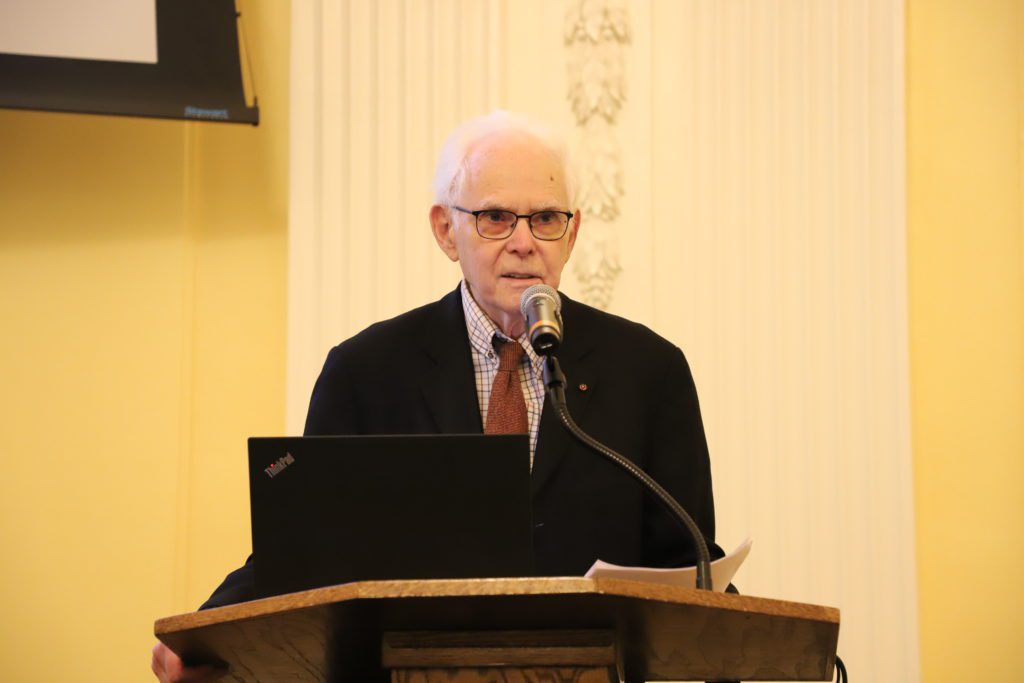
Near the end of the discussion, another student asked about the difficulty of acquiring accurate polling data — to which Huber replied that political experts do not know and are “terrified.
Edward Blunt ’26, a London native, was one of the students in attendance at the event.
“Even Brits should care about elections in the U.S,” Blunt told the News. “These midterms are critical in understanding what kind of country the United States is going to be, particularly in the next two years. Is Trumpian politics going to win out or is the more moderate politics going to win out?”
The midterm elections took place on Nov. 8, 2022.







